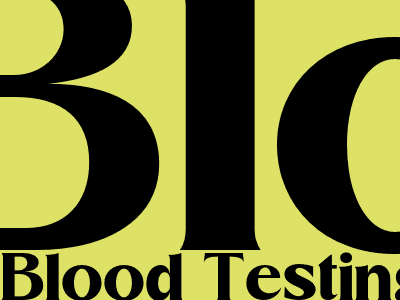Blood Testing Service: Revolutionizing Healthcare with Advanced Technologies
Introduction
Blood testing services have become an integral part of modern healthcare, providing valuable insights into an individual's health status. Advancements in technology have revolutionized blood testing, expanding its capabilities and offering new opportunities for diagnosis, monitoring, and personalized treatment.Types of Blood Tests
There are numerous types of blood tests available, each designed to measure specific substances or components in the blood. These may include: *Complete blood count (CBC): Assesses the levels of red blood cells, white blood cells, platelets, and hemoglobin.
*Chemistry panel: Measures the levels of electrolytes, glucose, cholesterol, and other chemicals to assess organ function.
*Hormone tests: Measures the levels of hormones produced by various glands, such as thyroid hormones and sex hormones.
*Immunoassays: Detects the presence of specific proteins, antibodies, or antigens related to infectious diseases or autoimmune disorders.
Benefits of Blood Testing Services
Blood testing offers numerous benefits in healthcare, including: *Early detection and diagnosis: Blood tests can detect early signs of disease, such as cancer, diabetes, and heart conditions, enabling timely intervention and treatment.
*Monitoring and management: Blood tests can help monitor the progression of chronic conditions, such as diabetes and kidney disease, and adjust treatment plans accordingly.
*Personalized medicine: Blood tests can provide genetic and genomic information to guide personalized treatment strategies based on an individual's unique profile.
Technology Advancements in Blood Testing
Recent advancements in technology have significantly enhanced the capabilities of blood testing services: *Automation: Automated systems reduce human error and improve accuracy and efficiency.
*Multiplexing: Allows for the simultaneous measurement of multiple analytes in a single blood sample, reducing the need for multiple tests.
*Biosensors: Enable rapid and sensitive detection of biomarkers, such as proteins and DNA.
The Future of Blood Testing Services
The future of blood testing services holds promising advancements, including: *Point-of-care testing: Portable devices will enable blood testing at home or in remote areas, increasing accessibility and convenience.
*Liquid biopsy: Non-invasive blood tests for detecting cancer and other diseases by analyzing circulating tumor cells or DNA.
*Personalized health management: Blood testing will become more personalized, providing tailored health recommendations based on an individual's unique data.

Comments